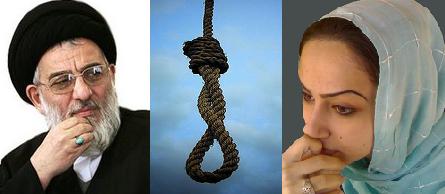(2023: Video has now been set to private by the owner – https://www.youtube.com/v/9Am9Q-kpR7w)
SPEAKER UK Foreign Office Minister, Ivan Lewis
DATE June 30, 2009
Many thanks for inviting me here tonight to mark the launch of the Stop Child Executions report into juvenile executions in Iran.
The launch of this report is timely: we have all been watching with concern the aftermath to the election in Iran. We have said repeatedly that we do not want to interfere in Iran’s internal affairs: it is for Iranians to decide who should govern them.
But with our EU partners we have condemned the arrest and detention of peaceful demonstrators and journalists. People everywhere in the world have the right to express their views freely and peacefully.
We must continue to speak out when we see such tragic events, particularly given that Iran’s human rights record is a cause for concern to us all.
The plight of the 130 children currently on death row throughout Iran is just one such concern that must remain at the very forefront of all our minds.
No doubt you will all remember what you were doing early on the morning of the 1 May, when you learned of the tragic news that Delara Darabi had been put to death, hanged for a crime she was accused of committing when she was just 17.
Despite six years of tireless campaigning for her release by the international community, led by Stop Child Executions, Delara was executed suddenly and without warning. Neither her family nor her lawyer was told until it was too late.
It is a fitting tribute that Delara’s artwork adorns the cover of this pamphlet.
Unfortunately her death is the latest in a terribly long list. Iran has executed at least forty juvenile offenders since 1999, and is one of the only countries to continue this unacceptable practice.
Such acts are simply wrong.
They are also in clear violation of internationally accepted norms and legal standards. The Iranian government must know this, not least because it has ratified the International Covenant on Civil and Political Rights and actively participated in the drafting of the Convention on the Rights of the Child. Both unequivocally prohibit the use of the death penalty against people convicted of crimes committed under the age of 18.
The Iranian government has committed themselves to protecting and enshrining the rights contained within. They have also agreed to hold themselves accountable before the international community.
The UK Government is determined to help that happen. Alongside our EU partners we are committed to speaking out publically against the death penalty wherever it is applied, and make representations on behalf of each and every juvenile at risk of execution.
Over the last eighteen months we, alongside our EU partners, have made direct representations to the Iranian authorities on behalf of juveniles facing the noose.
And international pressure has made a difference. In many cases they have been issued a stay of execution.
Yet this is not enough. Words are not enough. And the present situation has made it even harder for us to get our message across.
The international community and civil society has a role to play. We are strongest when we work together.
That is why the work of organisations such as Stop Child Executions is so important.
Not only do they provide valuable information for the outside world, they provide hope and support to the victims and their families, and also to millions of Iranians who are campaigning for their government to abolish juvenile executions for good.
I am extremely encouraged by the publication of this comprehensive report. It provides irrefutable evidence as to the situation on the ground and makes many excellent recommendations for both Iran and the international community to take forward.
Importantly, the report highlights the many legal inconsistencies in Iran’s judiciary and stark contradictions between its actions and its human rights commitments.
Reports such as this are particularly important as Iran prepares to stand before the UN’s Universal Period Review in 2010.
The UN’s “UPR” process is an increasingly effective mechanism used to examine member States’ human rights records. The UK government is committed to engaging with the process and hope we can work together with organisations such as SCE and the Foreign Policy Centre to make that happen.
Publications and events like this serve to remind the Iranian authorities that the eyes of the world are on them. Their actions do not go unnoticed.
In conclusion, I want to thank the authors of this report for doing just that.
And for reminding us all here tonight just how far Iran really is from implementing its freely undertaken human rights commitments, and why we must all continue to work together to fight for the rights of those who are denied a voice.
Source: http://www.fco.gov.uk/en/newsroom/latest-news/?view=Speech&id=20448954



